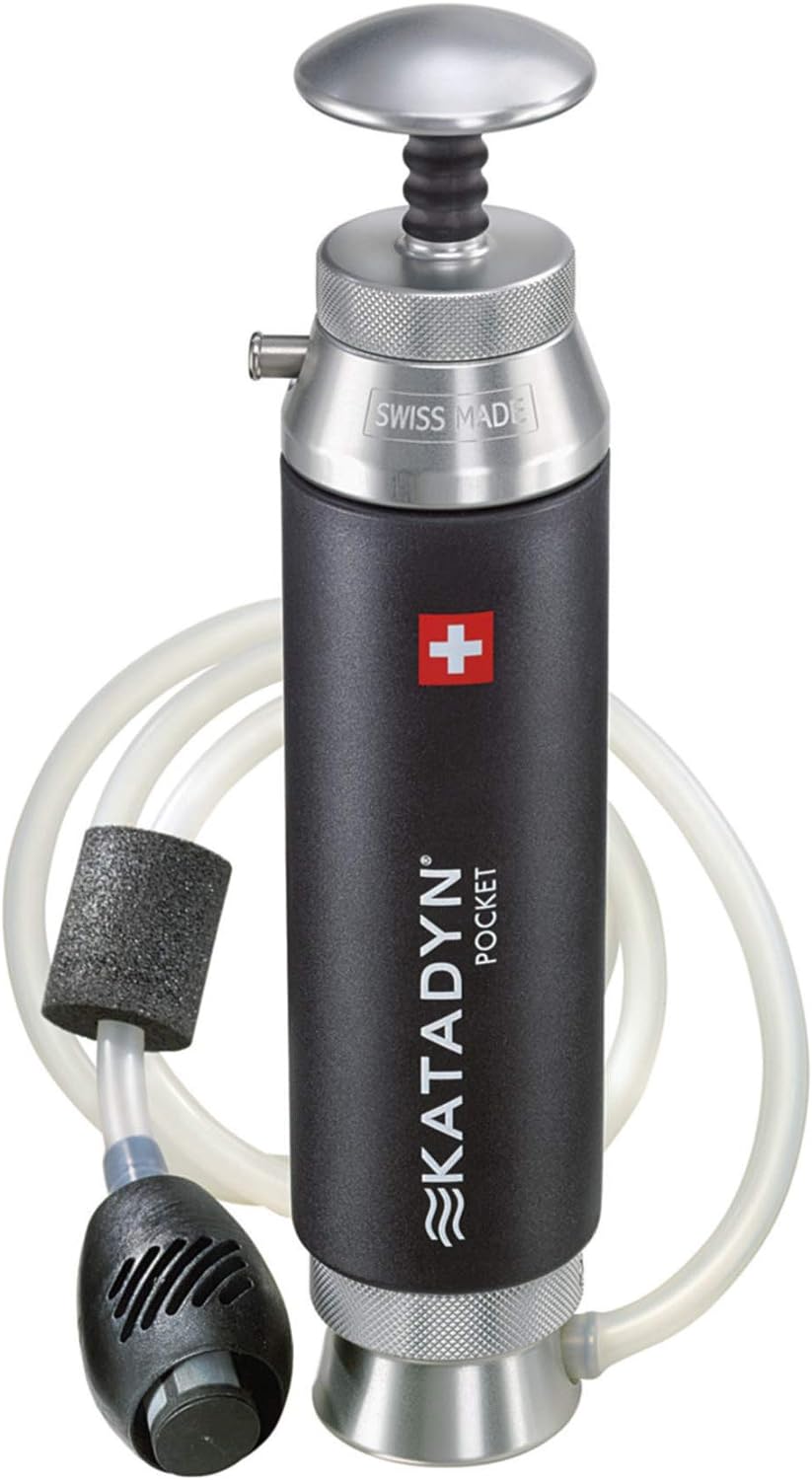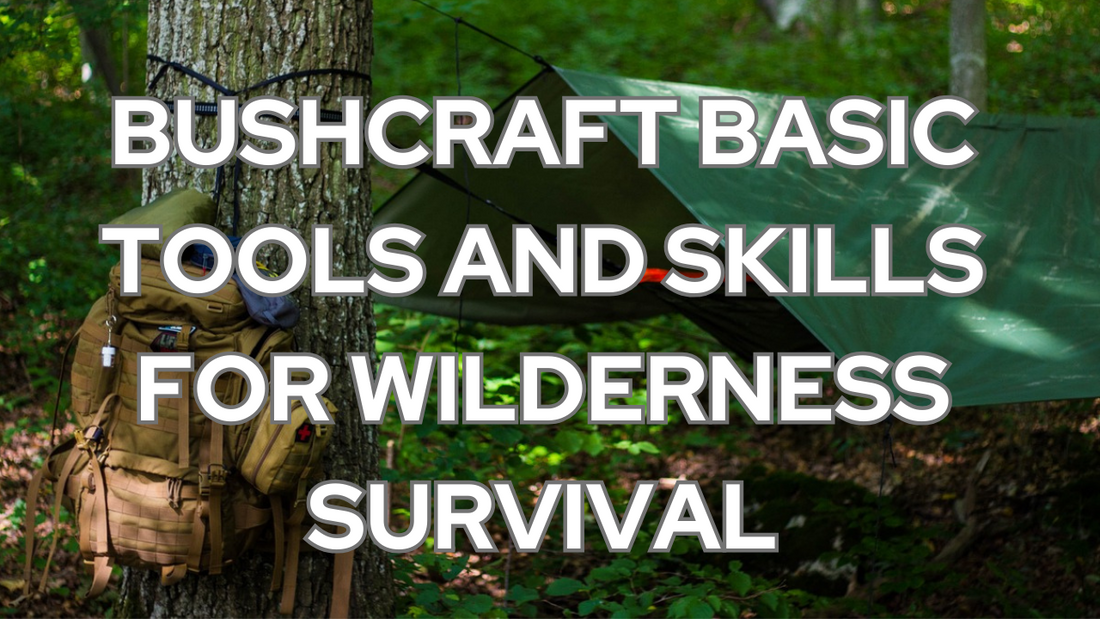In Wilderness, where the echoes of modern civilization fade into the distance, bushcraft emerges as both an art and a science. It's a primal skill set that transcends time, allowing individuals to not just survive but thrive in the wild.
What is Bushcraft?
Bushcraft is the art of living and surviving in the wild. It is a skill that humans have practiced for centuries. It can be used for various purposes, such as camping, hiking, and survival.
In the following guide, we'll explore the essential tools of bushcraft, from a good backpack to snares.
Bushcraft Basic Tools
A Good Backpack

Picture yourself deep in the woods, surrounded by towering trees and the faint rustling of leaves. Your first step in mastering bushcraft is choosing the right backpack, the cornerstone of your outdoor gear. Opt for a sturdy, weather-resistant backpack with multiple compartments for efficient organization. It will be your companion, carrying everything you need for your journey.
Fixed Blade Knife
The Blade that Never Fails

Now, let's turn our attention to the quintessential tool —the fixed-blade knife. It's not just a tool; it's an extension of your arm, serving many purposes. With its razor-sharp edge and durable construction, a good fixed-blade knife can be used for shelter building, food preparation, and crafting essential items in the Wilderness.
Hatchet
Chopping Wood, Crafting Shelter

As you venture deeper into the woods, you'll quickly realize the importance of a hatchet. This trusty companion allows you to fell trees, split logs, and shape wood for Shelter and fire. Its compact design and robust construction make it a versatile tool for bushcraft nerds.
Multitool
The Swiss Army Knife of the Wild

In the ever-changing environment of the Wilderness, adaptability is vital. A multitool combines several functions into one compact package. With tools like pliers, screwdrivers, and blades, it's a valuable addition to your toolkit. Whether you need to repair gear or makeshift fishing hook, the multitool has you covered.
Saw
Slicing Through Nature's Bounty

While a fixed-blade knife can handle many cutting tasks, a saw provides more precision and ease when cutting through larger logs and branches. A folding saw, compact and lightweight, is an ideal choice for bushcraft. It ensures you can secure firewood and build sturdy shelters efficiently.
Knife Sharpener / Whetstone
Keeping the Blade Razor-Sharp

In the unforgiving Wilderness, a dull blade can be your undoing. A knife sharpener or whetstone is indispensable to maintain your tools optimally. Regular maintenance ensures your fixed blade knife and other cutting tools remain reliable and effective.
Entrenching Tool
Digging Deep for Survival

Adaptability is critical, and an entrenching tool provides just that. This compact, lightweight tool serves multiple functions, from digging a fire pit to creating a makeshift restroom. Its folding design makes it easy to carry and deploy when needed.
Paper Maps, Plasticized, Waterproofed
Navigating the Wilderness

As you immerse yourself in bushcraft, navigating the Wilderness becomes essential. While modern technology offers GPS and digital maps, paper maps remain a reliable backup. Ensure they are plasticized and waterproofed to withstand the elements.
Fire Starter, Such as a Ferro Rod
Igniting the Flame of Survival

In the wild, fire is not just a source of warmth; it's a lifeline. Like a ferro rod, a reliable fire starter can make the difference between life and death. It generates hot sparks even in adverse conditions, guaranteeing the fire you need for cooking and warmth.
Portable Water Filter
Quenching Your Thirst Safely

Water is your most crucial resource in the Wilderness, but drinking straight from streams or lakes is sometimes safe. A portable water filter purifies water on the go, ensuring you stay hydrated without the risk of waterborne illnesses.
Lensatic Compass
Finding Your Way Home

Bushcraft often takes you deep into uncharted territory. To navigate the Wilderness effectively, a lensatic compass is indispensable. Its precision and durability make it essential for orienteering and ensuring you always keep your way.
Pot, Preferably Aluminum
Cooking in the Wild

A lightweight aluminum pot is your go-to cooking vessel in the wild. Its efficiency in conducting heat ensures you can prepare meals, boil water, and even distill water when needed, all while keeping your pack light.
Buy best Quality Camp kettle & hobo stove Kelly Kettle
Tarp
Shelter from the Storm

Building a shelter is one of the first tasks in bushcraft. A compact and handy tarp can serve as your Shelter's foundation. You can waterproof and windproof refuge with the proper knots and techniques.
Snares, Fishing Lines, Hooks
Foraging in the Wilderness

Survival in the wild often requires you to procure your food. Snares, fishing lines, and hooks enable you to catch fish, providing a sustainable source of nutrition.
The Five Cs of Bushcraft
it's crucial to remember the five Cs: cutting tools, combustion devices, cover elements, containers, and cordage. These Cs form the core of bushcraft skills, guiding your preparations and actions in the wild.
Leave No Trace Principles
Guidelines for minimizing human activity's impact on the environment. These principles are essential for anyone who wants to practice responsibly.
The seven Leave No Trace principles are:
-
Plan and prepare
-
Travel and camp on durable surfaces
-
Dispose of waste properly
-
Leave what you find
-
Minimize campfire impacts
-
Respect wildlife
-
Be considerate of other visitors
Practicing Minimum Impact
-
Choose a campsite that is already established.
-
Pack out all of your trash, including food scraps and toilet paper.
-
Bury your waste in a cathole at least 6 inches deep and 200 feet from water, trails, and campsites.
-
Use a fire ring or other designated fire pit.
-
Leave plants and animals undisturbed.
-
Be quiet and respectful of other visitors.
In conclusion, bushcraft is a holistic survival art that demands practical knowledge and tools. By understanding the big picture and equipping yourself with the essentials, you can embark on a journey of self-reliance and connection with the natural world. With your trusty backpack and these essential tools, you'll be prepared to face the challenges of the wild and thrive in the heart of nature.


